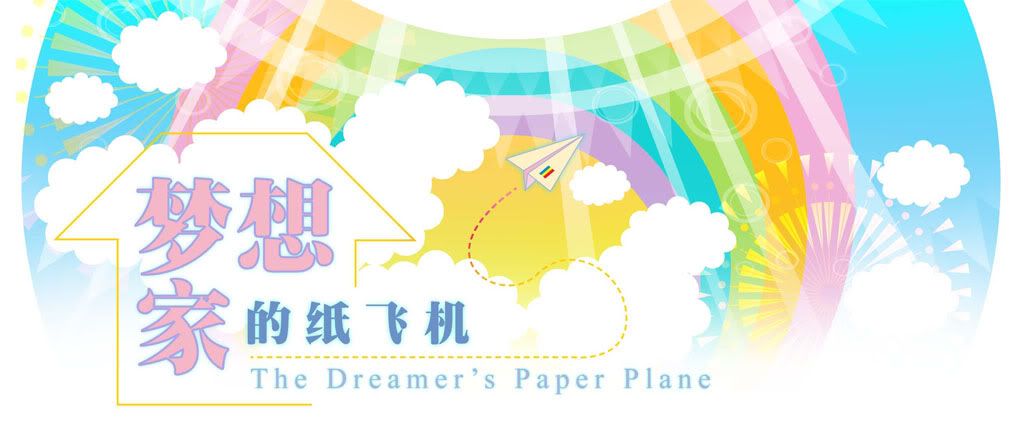
Wednesday, July 15, 2009
Humanism Education
Question: I’m an educator. I’ve always wanted to promote the Humanisitc education and never scold nor punish pupils and focus more on dialogue. But I found out that the teacher next door teaches with a very strict attitude, and yet the pupils get better results compared to mine. Plus, their relationship is close too. I would like to ask if I should teach strictly along with the humanistic education. Or that I’m not familiar enough to the humanistic education?
Answer: In my opinion, I think that the humanistic education has nothing to do with teaching strictly. The main point is that every kid is different, what kind of education is right for them to grow up happily?
Regarding the humanistic education, Makiguchi Sensei once said: “What’s the main purpose of education? Why don’t we just carry up our kids and ask ourselves, how could I let our kids grow up happily, rather than discussing such a profound topic.”
Ikeda Sensei said: “There should be a support of trust behind education to create a value. The important thing is ‘Character building’, giving ‘the Idea of achieving peace’, teaching them the ‘loving mankind education’ which could ‘contributes to the society’.” Hence, why don’t we think about the way of education that could construct trust? Being too strict to the kids could limit their potentials. They might not have the courage to do what they wanted to, but just following quietly of what the teachers told them to do. Is this what you call happiness when they can’t even express themselves?
The children educators have been investigating the effects of corporal punishment on kids for years. As a result, corporal punishment could have long term impact on both a kid’s physical and mental health. Thus, many educators around the world have been suggesting of stopping the use of corporal punishment. Sweden is the first country that has a Zero-corporal punishment legislation. It was an important phase when the government of Sweden is improvising the criminal law on 1957. Back then, the people knew more about children education development. They found out that there's other better ways of educating the children.
Strict disciplinary took place when adults are facing setback while educating the children. Feeling annoyed, the children weren’t good at communicating with adults, fail to achieve adults’ expectations, and adults would start to think that they aren’t behaving well. Thus strict disciplinary and corporal punishment happened to be a great idea to cut off the trouble. But it’s never a good way to settle those problems. Actually corporal punishment even caused more of the society problems. For instance, a kid might have grown up to be offensive if he/she was treated that way.
Now, about the teacher next door and the close relationship they have. Maybe there’s some effort that we’ve left out, or that we haven’t notice.
There’s a good example from a principal in a school located at the Port Klang. He said: “We don’t get good behavior out of corporal punishment, but through good influence. On the other hand, a strict teacher should first be strict to him/herself. He/she should be understanding, listen to the children’s opinion and have a good influence on them. We should all love them just the way we love our own kids.” When the reporters started asking questions to the children, one of the children said: “If it was other schools, pupils will always be afraid of entering the principal’s office, but for me, I like seeing and talking to our principal. He’s not fierce, and he would always encourage us.” Another teacher said: “We don’t have to be fierce to the pupils. When they really did something wrong, we could always talk to them, and start a good influence on them.” Hence, this school is often called as “the oasis of primary school”, and all the students there grow up happily. After visiting the school, the reporter found out that the principal didn’t even talk about the results of exams. All he said was how to help the children, and some of his good memories educating them.
From this, we could clearly see that education is an activity of creating value. We live to create value. And our greatest happiness is to create the greatest value. Makiguchi Sensei thinks that the aim of education is:
“To change an aimless life into a life with value,
To make a meaningless life meaningful,
To make a valueless life full of values,
To make a life with negative value full of positive values,
To make a life with low value to have higher value,
To turn useless action into useful actions,
To turn menacing action into heartening actions,
To turn bad action into good actions”
Based on what we’ve shared, I hope that you could understand more about the philosophy of humanistic education. And at the end, realize and use what you’ve learnt. Your struggle will bring the children happiness and create great values.
All mothers love their children equally. But every child needs a different kind of love, since they’re all different. Only through your sincerity could you perceive their hearts.
Shared by,
Primitive.
Reference: Soka Education System, Sin Chew Jit Poh (7th July) Supplement Page, New Education, Notes on Humanism Education.
Answer: In my opinion, I think that the humanistic education has nothing to do with teaching strictly. The main point is that every kid is different, what kind of education is right for them to grow up happily?
Regarding the humanistic education, Makiguchi Sensei once said: “What’s the main purpose of education? Why don’t we just carry up our kids and ask ourselves, how could I let our kids grow up happily, rather than discussing such a profound topic.”
Ikeda Sensei said: “There should be a support of trust behind education to create a value. The important thing is ‘Character building’, giving ‘the Idea of achieving peace’, teaching them the ‘loving mankind education’ which could ‘contributes to the society’.” Hence, why don’t we think about the way of education that could construct trust? Being too strict to the kids could limit their potentials. They might not have the courage to do what they wanted to, but just following quietly of what the teachers told them to do. Is this what you call happiness when they can’t even express themselves?
The children educators have been investigating the effects of corporal punishment on kids for years. As a result, corporal punishment could have long term impact on both a kid’s physical and mental health. Thus, many educators around the world have been suggesting of stopping the use of corporal punishment. Sweden is the first country that has a Zero-corporal punishment legislation. It was an important phase when the government of Sweden is improvising the criminal law on 1957. Back then, the people knew more about children education development. They found out that there's other better ways of educating the children.
Strict disciplinary took place when adults are facing setback while educating the children. Feeling annoyed, the children weren’t good at communicating with adults, fail to achieve adults’ expectations, and adults would start to think that they aren’t behaving well. Thus strict disciplinary and corporal punishment happened to be a great idea to cut off the trouble. But it’s never a good way to settle those problems. Actually corporal punishment even caused more of the society problems. For instance, a kid might have grown up to be offensive if he/she was treated that way.
Now, about the teacher next door and the close relationship they have. Maybe there’s some effort that we’ve left out, or that we haven’t notice.
There’s a good example from a principal in a school located at the Port Klang. He said: “We don’t get good behavior out of corporal punishment, but through good influence. On the other hand, a strict teacher should first be strict to him/herself. He/she should be understanding, listen to the children’s opinion and have a good influence on them. We should all love them just the way we love our own kids.” When the reporters started asking questions to the children, one of the children said: “If it was other schools, pupils will always be afraid of entering the principal’s office, but for me, I like seeing and talking to our principal. He’s not fierce, and he would always encourage us.” Another teacher said: “We don’t have to be fierce to the pupils. When they really did something wrong, we could always talk to them, and start a good influence on them.” Hence, this school is often called as “the oasis of primary school”, and all the students there grow up happily. After visiting the school, the reporter found out that the principal didn’t even talk about the results of exams. All he said was how to help the children, and some of his good memories educating them.
From this, we could clearly see that education is an activity of creating value. We live to create value. And our greatest happiness is to create the greatest value. Makiguchi Sensei thinks that the aim of education is:
“To change an aimless life into a life with value,
To make a meaningless life meaningful,
To make a valueless life full of values,
To make a life with negative value full of positive values,
To make a life with low value to have higher value,
To turn useless action into useful actions,
To turn menacing action into heartening actions,
To turn bad action into good actions”
Based on what we’ve shared, I hope that you could understand more about the philosophy of humanistic education. And at the end, realize and use what you’ve learnt. Your struggle will bring the children happiness and create great values.
All mothers love their children equally. But every child needs a different kind of love, since they’re all different. Only through your sincerity could you perceive their hearts.
Shared by,
Primitive.
Reference: Soka Education System, Sin Chew Jit Poh (7th July) Supplement Page, New Education, Notes on Humanism Education.
Labels: r. Q and A Station

















































